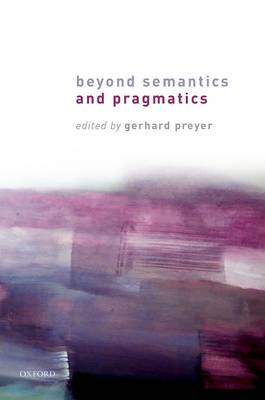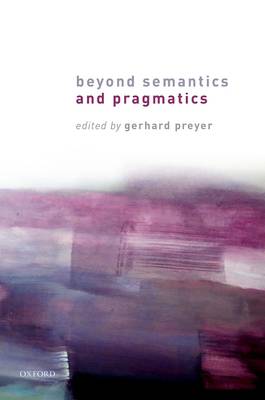
Bedankt voor het vertrouwen het afgelopen jaar! Om jou te bedanken bieden we GRATIS verzending (in België) aan op alles gedurende de hele maand januari.
- Afhalen na 1 uur in een winkel met voorraad
- In januari gratis thuislevering in België
- Ruim aanbod met 7 miljoen producten
Bedankt voor het vertrouwen het afgelopen jaar! Om jou te bedanken bieden we GRATIS verzending (in België) aan op alles gedurende de hele maand januari.
- Afhalen na 1 uur in een winkel met voorraad
- In januari gratis thuislevering in België
- Ruim aanbod met 7 miljoen producten
Zoeken
Omschrijving
The study of meaning in language embraces a diverse range of problems and methods. Philosophers think through the relationship between language and the world; linguists document speakers' knowledge of meaning; psychologists investigate the mechanisms of understanding and production. Up through the early 2000s, these investigations were generally compartmentalized: indeed, researchers often regarded both the subject-matter and the methods of other disciplines with skepticism. Since then, however, there has been a sea change in the field, enabling researchers increasingly to synthesize the perspectives of philosophy, linguistics and psychology and to energize all the fields with rich new intellectual perspectives that facilitate meaningful interchange. The time is right for a broader exploration and reflection on the status and problems of semantics as an interdisciplinary enterprise, in light of a decade of challenging and successful research in this area. Taking as its starting-point Lepore and Stone's 2014 book Imagination and Convention, this volume aims to reconcile different methodological perspectives while refocusing semanticists on new problems where integrative work will find the broadest and most receptive audience.
Specificaties
Betrokkenen
- Auteur(s):
- Uitgeverij:
Inhoud
- Aantal bladzijden:
- 330
- Taal:
- Engels
Eigenschappen
- Productcode (EAN):
- 9780198791492
- Verschijningsdatum:
- 23/10/2018
- Uitvoering:
- Hardcover
- Formaat:
- Genaaid
- Afmetingen:
- 157 mm x 236 mm
- Gewicht:
- 657 g

Alleen bij Standaard Boekhandel
+ 354 punten op je klantenkaart van Standaard Boekhandel
Beoordelingen
We publiceren alleen reviews die voldoen aan de voorwaarden voor reviews. Bekijk onze voorwaarden voor reviews.









